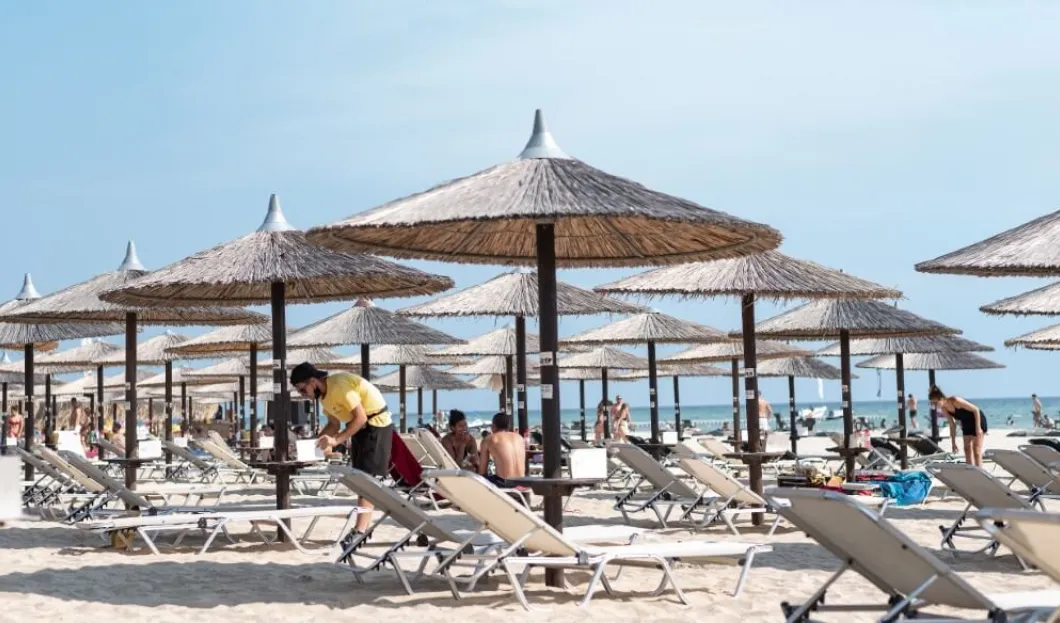
26 million – this is the number of tourists that Greece lost last summer. Despite the good management of the crisis, the country's tourism sector has been heavily impacted. During the last year, the Cradle of Democracy only welcomed 8 million tourists, against 34 million in 2019.
Last summer season, "only" 200 people died from Covid-19 in Greece, for a population of 10.8 million. The government had one objective in mind: to make the country a "safe destination" in order to keep tourism afloat. A failure.
The State has managed, despite everything, to support the economy, with a program and interventions valued at more than 20 billion euros. This mechanism focuses on 3 points: supporting employment, reducing taxes, and strengthening entrepreneurship.
A National Recovery Plan
For the most indebted country in the European Union, which was just beginning to recover after ten years of the economic and financial crisis, there is no question of missing this new opportunity! The Greek government has finalized its national recovery plan with 30 billion euros from the European recovery fund. If this aid is used properly, it will allow for a profound transformation of the country's economic model.
More than 2,000 pages have been read and examined by senior Berlaymont officials. Months of daily work with the teams of the Greek Prime Minister, Kyriákos Mitsotákis, to make this project ambitious in economic terms and credible in its implementation. The Prime Minister sees a historic opportunity to put his country's activity back on a firmer footing, a real opportunity to reshuffle the deck for the Greek economy.
The Return of Tourism
Greece should be ready to open fully to tourists on May 14. This sector is a key element that represents thousands of seasonal jobs per year. The Civil Aviation Authority has lifted the mandatory seven-day quarantine for foreign visitors from the European Union, the Schengen area, the United States, the United Kingdom, Israel, Serbia and the United Arab Emirates.
Visitors from these countries who wish to stay in Greece must have either an authorized certificate stating that they have received all doses of vaccine at least two weeks prior to arrival or a negative PCR test performed within 72 hours prior to their flight.
The new legislation and the relaxation of measures are aimed at attracting visitors and bolstering the coffers of tourism companies. The government has high expectations for the summer season and is therefore taking all available measures to avoid disastrous losses like last year.
It should be noted that workers in the tourism sector will be vaccinated in order to be ready for the summer season, said the Greek Minister of Tourism Development, Haris Theocharis.
Unfortunately, at the same time, voices are being raised against the lack of vaccination of Europeans and foreigners who live in Greece and who have long since passed the required age group. Residents and Greeks alike are worried that the restrictions will return with a vengeance, as they did last year, just after the summer vacations. Dimitris, who lives on the island of Aegean (only an hour from Athens by ferry) worries "I am a pistachio farmer and last year the annual pistachio festival in September was cancelled because of too many cases of Covid in the country. I lost my entire crop because I could not sell it. The government, however, continued to accept tourists as if nothing had happened. We have all been confined since November, it is a shame. "Greece has only 16 percent of its population vaccinated at least once.”
What If Tourism Did Not Save Greece?
For many years, Greece has been undertaking reforms to ensure greater stability in its economy. "The result will almost certainly be another recession and strong measures that will place a heavy burden on current and future generations," Tamer Hagag, an analyst and head of economic forecasting at the Ministry of Solidarity and Health, said.
The expert said that in this likely scenario, the consequences would be irrevocable, and foresees for the country many changes. “The lowering of the country's rating, the increase in the risk of default, high-interest rates in the market, inflation ... These are the changes that will cause a new economic crisis.”
Worse still, in the least favorable scenarios, if the country does not recover on its own, "it will be put under the supervision of an international institution," says the economic analyst, thoughtfully.
What Other Ways to Save Greece?
In the interview, Tamer outlines a number of possible courses of action, but elaborates on the most likely. "Greece could ask the European Union for an easy solution, that is to say, a cancellation of part or all of the debt. "In the short term, the country should develop and support the agricultural and service sectors, which are two of the three pillars of the Greek economy.
The analyst persists and concludes; despite all the steps and aids put in place, "the reforms begun will not produce a stable significant effect for several years..."
Again, reopening is complicated, however welcoming. New variants of the coronavirus are a constant concern. Airlines have cut routes again. Travelers may be forced to quarantine themselves after returning home. On top of that, there is the price of PCR tests (for those who have not yet had the vaccine) which may make more than one traveler cold - on average 120 euros (London) while the price of a ticket to Greece on a "low cost" company rarely exceeds, at the moment, 55 euros round trip.










